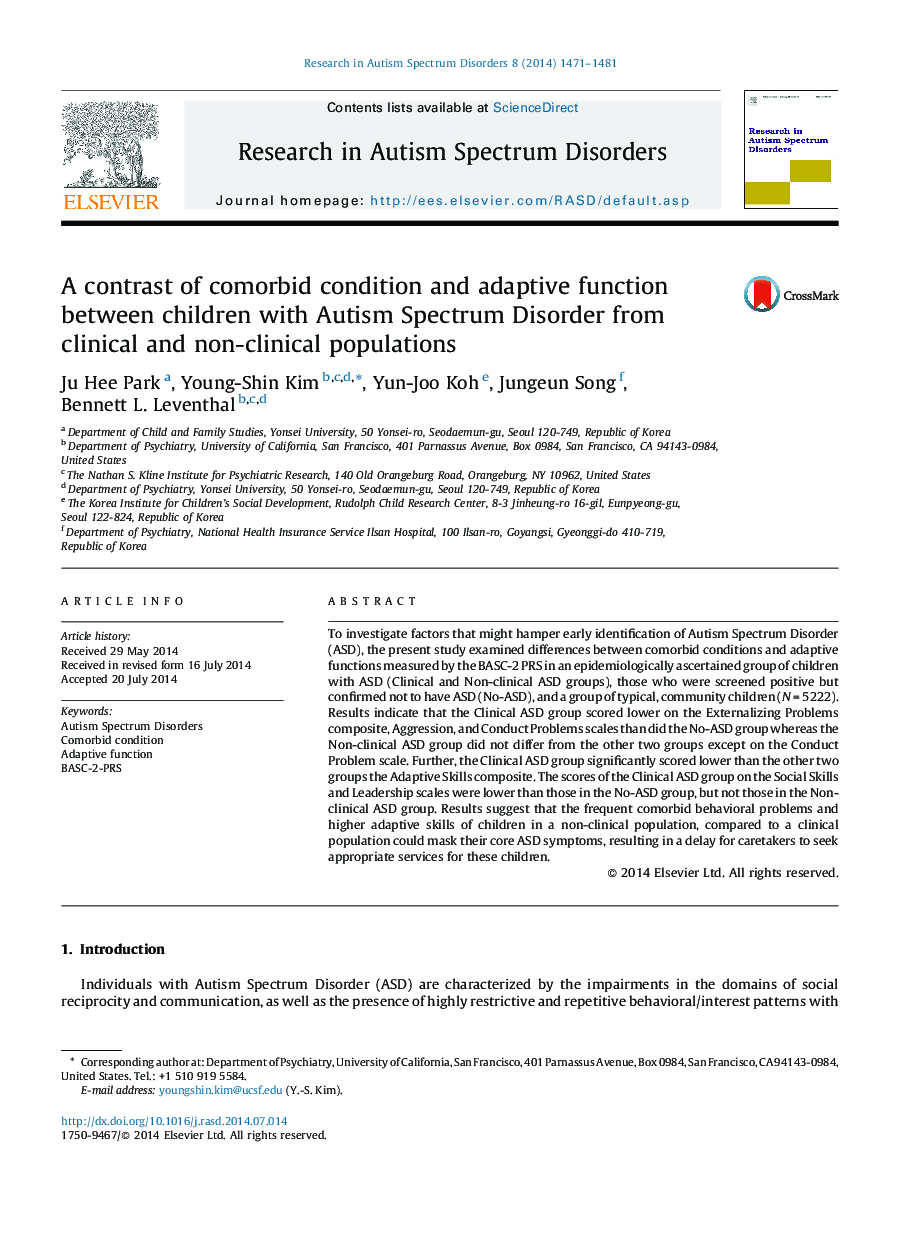| Article ID | Journal | Published Year | Pages | File Type |
|---|---|---|---|---|
| 10317093 | Research in Autism Spectrum Disorders | 2014 | 11 Pages |
Abstract
To investigate factors that might hamper early identification of Autism Spectrum Disorder (ASD), the present study examined differences between comorbid conditions and adaptive functions measured by the BASC-2 PRS in an epidemiologically ascertained group of children with ASD (Clinical and Non-clinical ASD groups), those who were screened positive but confirmed not to have ASD (No-ASD), and a group of typical, community children (NÂ =Â 5222). Results indicate that the Clinical ASD group scored lower on the Externalizing Problems composite, Aggression, and Conduct Problems scales than did the No-ASD group whereas the Non-clinical ASD group did not differ from the other two groups except on the Conduct Problem scale. Further, the Clinical ASD group significantly scored lower than the other two groups the Adaptive Skills composite. The scores of the Clinical ASD group on the Social Skills and Leadership scales were lower than those in the No-ASD group, but not those in the Non-clinical ASD group. Results suggest that the frequent comorbid behavioral problems and higher adaptive skills of children in a non-clinical population, compared to a clinical population could mask their core ASD symptoms, resulting in a delay for caretakers to seek appropriate services for these children.
Related Topics
Life Sciences
Neuroscience
Behavioral Neuroscience
Authors
Ju Hee Park, Young-Shin Kim, Yun-Joo Koh, Jungeun Song, Bennett L. Leventhal,
